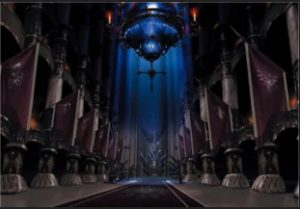This is mark Joseph “young” blog entry #377, on the subject of A New Tragedy of the Common.
In the early nineteenth century an economic principle was recognized which would later become known as The Tragedy of the Common. It has many applications, particularly in relation to modern environmental concerns, but I’d like to call attention to a new one emerging.
The concept is really rather simple. In medieval and post-medieval villages there was an area of grassland that was available for general public use, the common or commons. People would graze their sheep on it, as most did not have enough private land to support sheep raising. What was noticed is that the number of sheep being grazed on such shared land was usually more than the land could adequately support, and so the sheep fared poorly. The complication, though, was that although for the benefit of the community as a whole the total number of sheep should be reduced to a level sustainable by the land, for any one farmer the way to maximize his own return was to increase the size of his own flock. Although this reduced his return per sheep, it increased his total return–unless the system collapsed and the sheep died.
We can see this in application in many situations–the overfishing of our fisheries, poor forestry practices, the destruction of our jungles, the pollution of our rivers. Each individual benefits by destroying a bit more of the shared world. I, however, want to address a much more recent economic phenomenon.
It was joked not too many years ago that a particular retail distributor had become the internet’s electronics showroom: people interested in high-end electronics such as televisions and home entertainment systems and computers would visit their stores, examine the available products, then return home and order what they wanted more cheaply over the internet. The concept has spread far beyond electronics: reportedly many local game stores have been closing because customers browse in the store and then purchase what they want online. The pandemic of the past year has intensified this problem, because people were either prevented from or afraid of visiting retail stores, and so a great deal of purchasing shifted to online sources. Retailers of all stripes are struggling; customers are dwindling. Those of us who were driving during the pre-Christmas weeks noticed how sparse the traffic was compared to previous years, and not all of that was due to reduced disposable income. The number of the new Amazon delivery trucks on the road is stunning.
It struck me, first, that the issue really is whether we generally, individually, are willing to pay a little more for the things we want and need in order to keep the convenience of having local retail stores. After all, if the stores make no sales they cease to exist, and they will struggle even if they make a few sales. The disappearance of retailers will be a major shift in our economies, as many people are dependent on jobs in those industries. Additionally, even if you can get next day delivery on products from some online retailers, that’s not always fast enough, and having a local brick-and-mortar store that carries what we need means we can get it today, possibly even tonight if it’s open twenty-four hours. Although it is a disadvantage to us to have to pay a bit more, the advantages of having retail stores might be worth it.
But then I saw the tragedy. It is perhaps an inverse of the example, but in this case it is to every individual’s advantage to buy more cheaply online, but a disadvantage to the community to lose retail outlets. Further, because of this it is likely that individuals will in greater numbers move their purchases online until support for local retailers is inadequate and they are forced to close their doors. It thus becomes disadvantageous for anyone to support local retailers, as these are probably doomed by the force of the economic situation, and once they close those who tried to patronize them to support them will have spent that money with no way to recover it and no benefit to show for it, while those who abandoned the local shops sooner will have saved money in the process.
Is there a viable solution to this? Probably not–but it is part of a larger problem, that automation is reducing our need for a work force. There will continue to be fewer jobs for people, and particularly for unskilled workers, who will become an increasing burden on the welfare systems, unless we can devise a different economic system for the future.
I don’t see it, yet.






